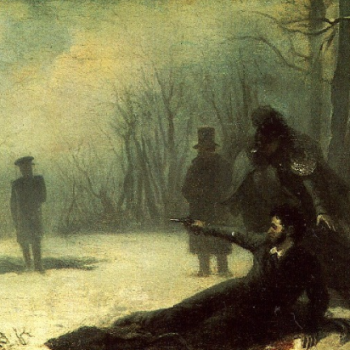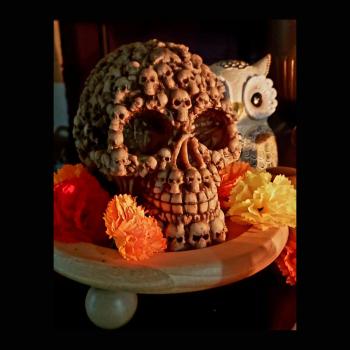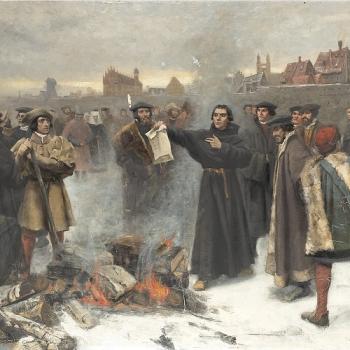 By Suhag A. Shukla
By Suhag A. Shukla
It was good karmic timing, I suppose, that the same week I was scoring dozens of entries from our foundation's NextGen essay contest, I was also asked to write a piece on the future of Hinduism. The topic for this year's contest: How Do Your Religious Beliefs and Practices Differ from Those of Your Parents. Essay after essay, I read accounts that very much mirrored my own spiritual journey as a second-generation Hindu American -- journeys that started with a push but continue by a pull. It also struck me that these young writers provided not only a glimpse into the future of Hinduism in America, but showed that Hinduism's future is so very much like her past: eternal, cyclical yet dynamic.
From the mundane to the metaphysical, cycles feature prominently in Hindu teachings and practice. Human life and spiritual evolution, through birth and rebirth (samsara), is a cycle; karma, the universal of law cause and effect -- another cycle; even ritual yogic breathing (pranayama) is a cycle. Hindu history too has cycled and recycled. Times of open inquiry have lead to ritualistic steadfastness. Ages of ritual perfection have devolved into periods of blind faith. Frustration from these periods has opened up to golden ages of introspection and inquiry. These have then been followed by somewhat rebellious eras of exuberant devotion and so on. The wheels keep on turning in the Hindu world regardless of the roads that she travels and any turns, bumps, or skids she encounters along the way.
Our young writers lamented in their essays, as did I twenty-some years ago, of the frustrations of having to learn how to drive as a Hindu on this new road called America. We were now answerable, unlike generations before, to our non-Hindu friends about what we believed in and why and had only our parents to turn to for direction -- parents who often did not have the answers or could not relay them in a way that we, in our Americanized contexts, could understand. In India, the country of origin for so many Hindu Americans, our ancestors lived and breathed a Hindu way of life. Days started with prayers acknowledging the Divine's presence in all of existence and asking Mother Earth for forgiveness before stepping on Her. The first few roti (flatbread) of any meal were offered to animals in the vicinity. Drive-by temple visits and weekly fasts were as mundane as picking up a gallon of milk at the grocery store. Religious holidays were also national holidays and every relative, neighbor, shopkeeper, and rikshaw driver got into the spirit and participated in elaborate celebrations that were simultaneously cultural and religious. For Hindus growing up in India, they learned how to be Hindu almost as if by osmosis. And in a culture in which respect and duty are paramount, the question of "Why?" never interrupted the process.
Crossing oceans, immigrant Hindus left this holistic approach to spirituality to achieve the American Dream. Money, McMansions, and Mercedes' replaced the other, more traditional Ms of Moderation, Mantras, and Meditation. Hindus realized fairly quickly, however, that the unmatched financial and professional success they were achieving was not translating to unmatched personal bliss nor was it providing any moral compass for their children by which to navigate life. As a result, many in the earlier generation realized three things: first, that life in America did not offer the osmotic learning they enjoyed as a member of a majority community; second, that their Hindu way of life offered something positive and was worth passing on and; third, that their children would not benefit from nor carry on anything unless they found relevance in the Ways.
Though it took nearly two to three decades, Hindu Americans began the process of not only reigniting their own faith but unraveling a generations-long cycle of rote religiosity and spiritual complacency. Appropriately today, and especially in America where the lure of "Westernization" is not as intriguing as it is in India, we find ourselves ushering in a Hindu renaissance of interpretation, introspection, and finding applicability of age-old wisdoms to modern life -- a testament to the eternal and dynamic nature of Hindu teachings. This increase in religious inquiry and understanding is also leading to a growing segment of Hindus who strive toward a Hindu way of life, not because they have to, but because they want to. And just as great Hindu thinkers have done through the ages, Hindus today are reexamining old practices and going inward and to the sources to reinterpret what may have been perverted through previous historical realities. They're letting go of the social constraints that tarnished the faith that are no longer relevant -- they are post-caste, post-superstition, and post-blind ritual.




